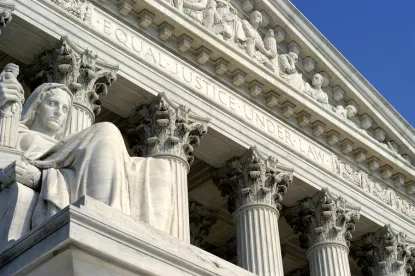In a year in which we saw a record number of religious accommodation charges and lawsuits, the Supreme Court has “clarified” the religious accommodation standard that employers and the EEOC have relied upon for more than 46 years.
In Groff v. DeJoy, a former United States Postal Service (USPS) mail carrier, Gerald Groff claimed that he was unlawfully denied his requested religious accommodation to not work Sundays. (Some of us remember the days when there was no mail or deliveries on Sunday). The USPS tried to find other carriers to cover Groff’s Sunday shifts, but because of a shortage of rural carriers, it often failed. Groff requested that the USPS exempt him from Sunday work, but the USPS declined, stating that his requested accommodation would lead to undue hardship for the USPS. The Third Circuit majority agreed concluding that exempting Groff from working on Sundays would burden his coworkers, disrupt the workplace and workflow, diminish morale, and damage the USPS’s operations.
Under Title VII of the Civil Rights Act, employers are required to reasonably accommodate employees whose sincerely held religious beliefs or observances conflict with work requirements, unless doing so would create an undue hardship for the employer. With no statutory definition of “undue hardship”, courts have relied on the Supreme Court’s decision in TWA v. Hardison, 432 U.S. 63 (1977), for the last 46 years to determine the parameters of the term. In Hardison, the Court statedthat requiring an employer “to bear more than a de minimis cost in order to give [an employee] Saturdays off is an undue hardship.”
In Groff, a unanimous opinion authored by Justice Alito, the Court changed the test. According to the Court, it now “understands Hardison to mean that ‘undue hardship’ is shown when a burden is substantial in the overall context of an employer’s business.” This is a significant change from what the EEOC and courts have stated, and employers have relied upon for years. The Court declined to incorporate the undue hardship test under the Americans with Disabilities Act which requires significant difficulty and expense.
The Court also declined to determine what facts would meet this new test and remanded the case back to the lower court to decide, setting up what will likely be years of legal battles with courts attempting to apply this new standard. But the Court did opine that “A good deal of the EEOC’s guidance in this area is sensible and will, in all likelihood, be unaffected by the Court’s clarifying decision.” According to the Court, “Courts must apply the test to take into account all relevant factors in the case at hand, including the particular accommodations at issue and their practical impact in light of the nature, size, and operating cost of an employer.”







 />i
/>i

